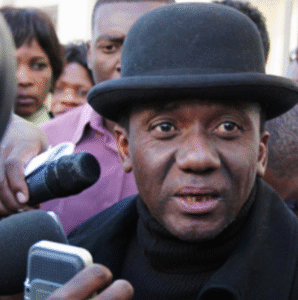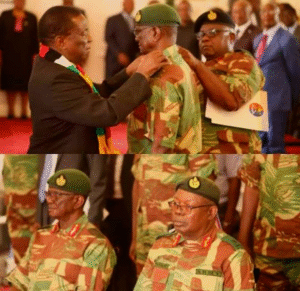HEALING THE PAST: ZIMBABWE’S CHIEFS TO LEAD GUKURAHUNDI OUTREACH PROGRAM

In an emblematic step towards reconciling one of Zimbabwe’s most harrowing chapters, the National Council of Chiefs, under the leadership of Deputy President Chief Fortune Charumbira, has announced a groundbreaking outreach programme aimed at addressing the Gukurahundi massacres, a deeply polarising episode of violence that has cast a long shadow over the nation’s history. Speaking to veteran journalist Ezra “Tshisa” Sibanda in Bulawayo, Chief Charumbira unveiled plans for the initiative designed to gather information and data through public hearings, a move many see as a pivotal moment in Zimbabwe’s journey towards national healing.
The Gukurahundi atrocities, executed by the Five Brigade between 1982 and 1987, remain one of the most painful and divisive subjects in Zimbabwe’s post-independence narrative. The military operation led to the death and displacement of thousands of civilians in the Matabeleland North and South provinces, as well as parts of the Midlands, leaving a legacy of trauma and unresolved grievances that has persisted for decades.
Chief Charumbira’s announcement comes at a critical time, signalling the National Council of Chiefs’ commitment to confronting this dark period head-on. The outreach programme is set to unfold in two phases, starting with public hearings in Matabeleland North and South, before extending to the Midlands province. These sessions aim to provide a platform for the voices of survivors, families of victims, and affected communities to be heard, in a collective effort to document the truth of what occurred during those turbulent years.
The leadership of the National Council of Chiefs in this initiative is particularly symbolic. The council is presided over by Chief Mtshane Khumalo, the great-grandson of the legendary Ndebele military strategist, General Mtshane Khumalo. General Khumalo was the commander of King Lobengula’s crack Imbizo regiment, which delivered a significant blow to colonial British forces at the historic Battle of Pupu on December 4, 1893. This battle marked the first deadly shots of armed resistance to colonialism following the raid on Bulawayo, embedding a deep sense of pride and resilience in the hearts of the Ndebele people.
The decision to spearhead the Gukurahundi outreach programme reflects the council’s broader vision of leveraging traditional leadership and cultural institutions as foundational pillars for fostering unity and reconciliation. By taking a proactive role, the chiefs are not only honouring their ancestral legacy of resistance and self-determination but also embracing their responsibility as custodians of peace and social cohesion in contemporary Zimbabwe.
As the nation anticipates the commencement of these public hearings, there is a palpable sense of cautious optimism. The outreach programme represents a critical step towards acknowledging the pain of the past, understanding the depth of the wounds inflicted, and paving the way for genuine reconciliation and healing. For many, it offers a beacon of hope that Zimbabwe can indeed confront its demons, learn from its history, and emerge stronger, united in its diversity and richer in its humanity.
The journey ahead is undoubtedly challenging, fraught with emotional pain and complex narratives that must be navigated with sensitivity and respect. Yet, under the guidance of the National Council of Chiefs, there is a newfound belief that Zimbabwe can traverse this difficult path, building bridges where walls once stood, and crafting a shared future anchored in justice, peace, and mutual respect.




